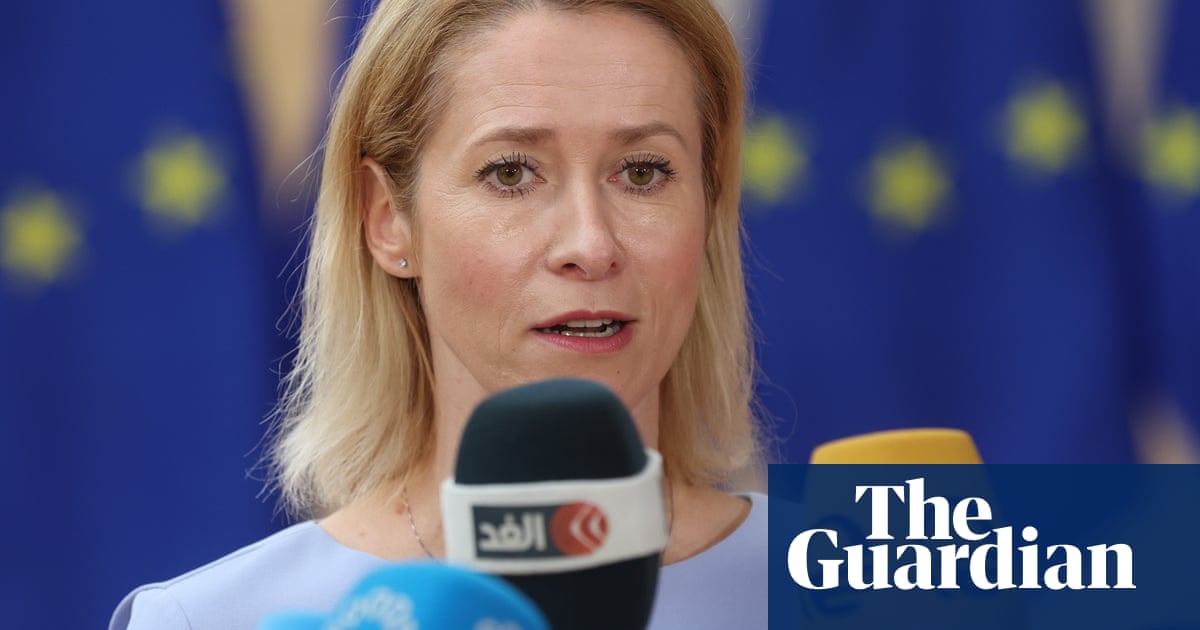The EU may take action to increase pressure onIsraelunless there are “concrete” improvements for the inhabitants of Gaza, its foreign policy chief has said.
After meeting the bloc’s foreign ministers in Brussels, Kaja Kallas said it was “very clear” that Israel had breached its human rights commitments inGazaand the West Bank.
She said if the situation for Palestinians did not improve, the EU could discuss “further measures and come back to this in July”.
But Kallas declined to spell out details: “The concrete question is what then we [the EU] are able to agree?
“But right now, the most important thing is to improve the situation on the ground, improve the lives of people in Palestine and stop the suffering and also human toll that we see there every day.”
The foreign ministers discussed the EU’s relationship with Israel after a report by Kallas’s team found “indications” that its ally was in breach ofhuman rights obligationsover the catastrophic humanitarian situation in Gaza andsettler violencein the West Bank.
Lisa Musiol of the International Crisis Group, which works to prevent conflict, said the EU had “missed an important opportunity to make clear to the Israeli government that its policies in Gaza and the West Bank have long crossed a red line and will come at a cost for EU-Israel relations”.
A review of the EU-Israel association agreement – a trade and cooperation pact – was triggered last month by 17 member states in protest at Israel’s blockade of humanitarian aid to Gaza.
On Monday, only Spain called for outright suspension of the agreement although other strong supporters of the Palestinians – Belgium, Ireland and Sweden – stressed the need for action.
Spain’s foreign minister, José Manuel Albares, also called for an arms embargo, telling his counterparts that the EU needed to speak frankly to its friend, Israel, over violations of human rights.
France’s foreign minister, Jean-Noël Barrot, told reporters that Israel had “clearly violated” article two of the EU-Israel agreement (a clause on human rights) and ministers would “draw the consequences” at their meeting next month.
However, Germany, Greece and Italy were among the countries that voiced opposition to suspending the agreement.
Italy’s foreign minister, Antonio Tajani, said his country was hosting Palestinian refugees because of its dialogue with Israel. Hungary, which is a staunch ally of Israeli prime minister Benjamin Netanyahu, opposed even launching the review.
Over the weekend, Israel reacted furiously tothe leaked review, describing it as “outrageous and indecent”. In a memo to the EU’s foreign service, it said the review was“a biased and extremely one-sided summaryof many anti-Israeli voices”.
The EU report is largely based on findings from UN bodies and the international court of justice.
Sign up toThis is Europe
The most pressing stories and debates for Europeans – from identity to economics to the environment
after newsletter promotion
While the overall pact can be suspended only by unanimity, parts of the relationship agreement – trade or Israel’s participation in the EU’s Horizon research programme – could be suspended by a weighted majority vote.
Belgium said the humanitarian situation in Gaza should not be forgotten amid concern about the escalating crisis in the Middle East following US airstrikes on Iran.
“Some countries may consider that this is not the right time to take measures against Israel, given that Israel is fighting Iran in order to preserve security,” said Belgium’s foreign minister, Maxime Prévot.
“I believe that the two issues must be separated,” he added, urging “that we do not lose sight of the humanitarian emergency”.
Sweden’s foreign minister, Maria Malmer Stenergard, said the “extremely severe situation” in Gaza should not be forgotten: “People are suffering and we cannot just watch.”
Agnes Bertrand Sanz of Oxfam said: “There are moments in history where delay and distraction are not neutral, it is a decision.
“While EU ministers continue to debate and defer, entire families in Gaza are being buried under rubble and people are being killed while trying to get food. Every second of delay costs lives.”
The association agreement, which came into force in 2000, underpins a trading relationship worth €68bn (£58bn) between the 27 EU countries and Israel. The bloc is Israel’s largest market, accounting for about a third of its exports.
